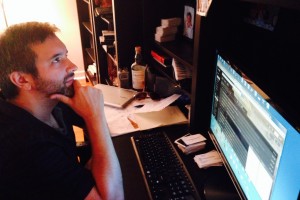
At an international private equity conference in Washington in May, speakers sounded the alarm about the twin challenges of rising populism and new technology reducing employment opportunities, especially in emerging economies.
Europe must have an interest in the economic development of Africa, said one speaker at the IFC EMPEA Global Private Equity conference. Otherwise, the refugee crisis the region already is dealing with will grow, the speaker said.
“If developed countries don’t find a way to address Africa’s fundamental and demographic problems, the game in Europe will be up. No way populism, anti-immigration could protect in Europe what could come from Africa in the form of people, migrants, terrorism,” said Vali Nasr, dean of the Paul H. Nitze School of Advanced International Studies, Johns Hopkins University.
In Africa, new technology is not really the problem because labor is so cheap. The issue is investing in job creation, Nasr said.
Europe’s involvement in helping grow African economies “may get the international community mind focused on how to create jobs in Africa,” Nasr said.
Developed nations haven’t paid enough attention to the losers of globalization and emerging technology, said Heidi Crebo-Rediker, chief executive of International Capital Strategies and a senior fellow at the Council on Foreign Relations.
There’s been a “lack of an ability to make policy adjustments in places that are wealthy and have institutions in place and education systems in place,” Crebo-Rediker said.
In the gilded hallways and ballrooms of the Ritz-Carlton in leafy northwest Washington, investors, academics and politicians from around the globe shared concerns about an increasingly insular world.
This rising tide threatens to derail the intricate system of global trade forged over decades. That in turn puts so much else at risk in the markets that were the focus of the conference: emerging economies.
The state of the world today is concerning for private equity, which thrives on the ability to grow companies out of their home markets. The global supply chain depends on the easy flow of capital, goods and people and is threatened by changing dynamics in developed countries.
Concern mingled with optimism at the conference. Private equity is thriving. The asset class has raised so much money it can’t spend it all. At the end of last year, global private equity had about $1.5 trillion of uncalled capital. That total amount eclipsed deal activities last year. A portion of that capital flows into emerging markets.
And the spigot doesn’t appear to be shutting off. At the conference, Abdiel Santiago, chief executive and chief investment officer of Fondo de Ahorro de Panama, said Panama’s sovereign fund is considering carving out an allocation to alternatives, including PE.
Fondo de Ahorro de Panama has about $1.4 billion in assets and is funded by revenue from the Panama Canal. It’s invested in equities and fixed income, but the investment team is weighing adding alternatives.
There’s a strange dynamic in today’s market — fear and optimism; hope and uncertainty; a lot of money and nervous investors. Investors are increasingly challenged in trying to find the right balance.
Private Equity Editor Chris Witkowsky reflects at home. Photo by Wendy Witkowsky


 If you do not receive this within five minutes, please try and sign in again. If the problem persists, please
email:
If you do not receive this within five minutes, please try and sign in again. If the problem persists, please
email: